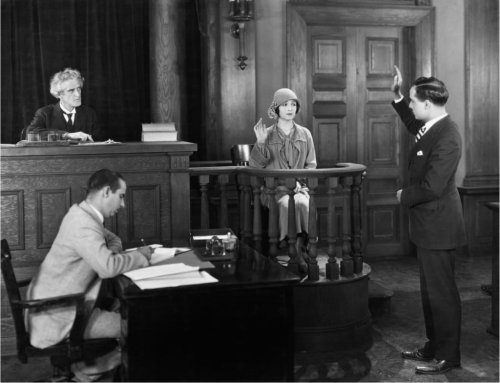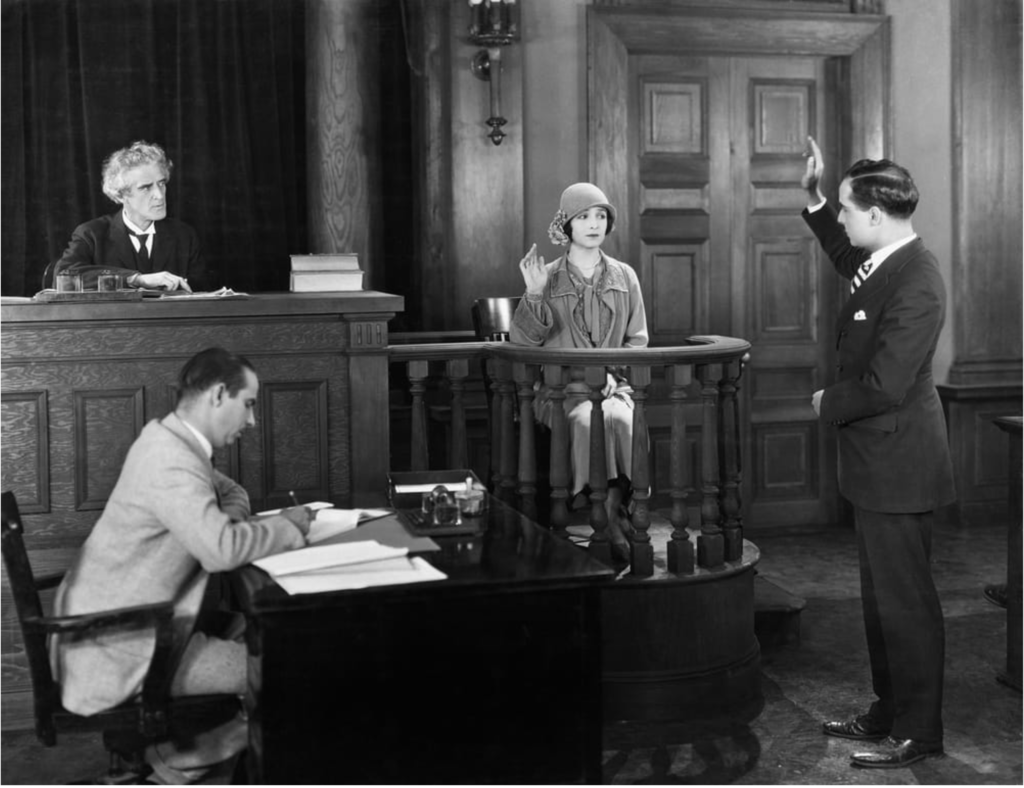Before committing my life to Jesus a few years back, I had to overcome one of the biggest roadblocks that had kept me from following him; the Bible. See, I knew it was written by men. I knew men make mistakes. I know men seek power and have agendas. I knew it was written in ancient languages and it had been translated over and over and over again. So, how could I trust a book that was written 2000 years ago by people who make mistakes and have a desire to craft a narrative that puts them in power?
Given the nature of this site, it should be no surprise that I somehow got past those roadblocks. So what changed? How did I go from being highly critical of the Bible to making it one of my favorite things to make the case for?
Well, first and foremost, I actually read it.
See, the whole time I was criticizing the Bible I had never really read it. I mean, I had read parts of it when I was in Sunday school as a kid. But, after I had gone off to college, I never cracked a Bible open again. Once I did start reading it (why I started is a story for another day), several of my hurdles were removed pretty quickly.
Did The Writers Have A Hidden Agenda?
First off, my roadblock of “the agenda”. Why did I think there was an agenda? Because I’m a Gen-Xer and Gen-Xers think every institution has a hidden agenda. My only basis to think this of the church was that it had seen success and had a lot of influence. I had this image in my head of the massive stone churches in Europe full of finely crafted items of unspeakable value. I grew up in the era of Jimmy Swaggert and Jim and Tammy Faye Baker. I heard preachers on TV say that the viewers’ salvation was connected with how much money they would send to his ministry. And I saw sex scandal after sex scandal where women were taken in by the draw of power and charisma. Therefore, there had to be a nefarious agenda of manipulation of the masses by men of power.
But, when I read the New Testament, I saw the life of Jesus of Nazareth, saw the lives of the apostles after Jesus’ resurrection, and read their teachings. These men lived a life of meager means. They traveled light. They didn’t make impassioned pleas for people to give them money like I saw the televangelists of the 80s and 90s do.
In fact, I saw just the opposite of what I had seen on TV, In his letters, Paul often reminds the recipients how he worked amongst them as a tentmaker to earn a wage (Acts 18:3-4), that he never asked them to support him while he was there (Acts 20:33-34), and that the guys who were coming around preaching and asking for money shouldn’t be trusted (1 Timothy 6:5, Acts 20:33).
There was nothing in these pages that set up a structure of power. There were no words about gaining financial wealth. In fact, they were encouraged to live modestly and give to others. There was no talk of coming under compliance of authority apart from God and Jesus. The apostles in Acts gave all the glory to God whenever they performed miracles. A few times, people fell to the ground and started worshiping the apostles as gods, but the apostles quickly stopped it (Acts 14:8-18). Paul even gave the church in Galatia instructions to ignore him if he changed anything he had originally taught them (Galatians 1:8).
As for scoring all the ladies, the apostles did – and taught to do – the exact opposite (Titus 1:6, 1Timothy3:2). And, at that time, this teaching was completely counter to the culture. Most men had a wife to bear him children and manage the house, a servant girl or two, and a favorite prostitute at the local temple. But, Jesus and the apostles taught one man, one woman. Paul even encouraged those who could do it to remain celibate (1 Corinthians 7:8-9).
What I quickly realized was that the church I saw now wasn’t the church I saw when the New Testament was written. The church had gained money and power. And there were certainly plenty of instances of sexual impropriety – even abuse. But, these things weren’t what was originally taught.
Do The Gospel Accounts Conflict With One Another?
One thing I had always thought was that the Gospels were too different from one another. You would think that if this book was directed by a supernatural force, the authors would at least be able to get their stories straight. But, the Gospel accounts aren’t the same. The accounts aren’t told in the same order, some have parts that others do not, and in some areas, they don’t appear to agree on the number of things – like how many people visited Jesus’ tomb and how many angels they saw.
When I read J. Warner Wallace’s book Cold-Case Christianity I realized that the slightly different accounts actually helped show that the authors were eyewitnesses. Wallace is a former homicide detective, so he’s conducted a lot of eyewitness interviews. And, when you interview eyewitnesses, it’s a bad sign if their stories are exactly the same. That means they corroborated together before the cops showed up to make sure they were telling the same story.
In reality, though, each one of us pays attention to certain details differently. If you ask two people who witnessed something to describe it, they will probably have some overlap. But, they will toss in different details based on things that were important to them or the things they could see based on their perspective.
For example, in December, my wife and I went to watch a local holiday parade that our daughter was in. We sat right next to each other. If you ask my wife what she saw in the parade, she will tell you about all the Cub Scout and Girl Scout troops and all of the schools that were represented. Why? Because she’s an elementary school teacher. She loves kids. If you asked me what I saw, I’m going to tell you about all the classic cars, marching bands, and the equestrian groups because those were my favorite parts. The only thing we would probably agree on in our description is that we saw our daughter. Same parade. Two different perspectives. Neither of our stories contradicts the other; they just include different details.
The Gospel accounts are the same way. Each author saw and heard different details of the same events. They were also writing for different audiences. Matthew’s Gospel is written for a Jewish audience. You can tell because he quotes more Old Testament Scripture than any other author. And Luke’s purpose was to “give an orderly account”. He felt the need to do this because the other accounts of the time weren’t done in an orderly way. Matthew and Mark are organized in more thematic ways than chronological.
The gospels give the same accounts of the life and ministry of Jesus. They differ in some details, but not at their core. In fact, if they were almost identical retellings, we should worry that they conspired to make sure they got all of their facts straight.
The New Testament Authors Included Embarrassing Testimony
Another thing that stuck out to me when I read through the Gospels is how the followers of Jesus were portrayed. Keep in mind that the apostles are the men who founded the church after Jesus left. These are the pillars. These are the men who wrote the vast majority of the New Testament. Many traditions even put the title of Saint before their names.
And yet, when you read through the Gospels they look more like The Twelve Stooges than twelve saints. They frequently misunderstand Jesus’ teachings, they argue with one another, Jesus rebukes them constantly, and they often act out foolishly. And, the ultimate sign that they didn’t get what was going on was that they all ran and hid when Jesus was arrested. They turned their backs on him.
Historians have a term for this kind of account and it is a way for them to evaluate if something is true or not. It’s called embarrassing testimony. If you want to make yourself look good, you don’t include stuff that makes you look bad. You only put the embarrassing stuff in if you’re telling the truth. Look at Peter and the picture that is painted of him in the Gospels. Peter is the man that the Roman Catholic church claim as the first Pope. And yet, in the pages of Matthew, Mark, Luke, and John, he looks like a fool. He almost drowns at sea trying to walk on water, Jesus calls him Satan at one point, he lops off the ear of someone when Jesus gets arrested (for which Jesus scolds him), and he denies he even knows Jesus later on when asked.
All throughout the book of Acts, the apostles are chased out of town after town, beaten, arrested, and even killed. They aren’t portrayed as glorious conquering heroes. They don’t walk into a place, start waving their arms around, and the people lovingly fall in line. In fact, they often meet a lot of opposition. And it’s all written in the pages of the Bible.
Jesus Got It Right
Finally, and this was one of the biggest eye-openers for me, as I read through the pages of the Gospels I realized Jesus got it right. He accurately described how the hearts of mankind worked, their motivations, and what would happen to his followers. All the scandals we have seen in the church – greedy pastors, the sexual improprieties, the thirst for power, and the craving for attention that some fall into – Jesus called all of that. He said all of those guys would show up. And gave reasons for why it would happen.
There was one other thing Jesus got right that really sealed the deal for me. More important than realizing there was no hidden agenda, that the Gospels weren’t contradictory, and that the church I saw wasn’t how Jesus taught it to be – more important than any other roadblock I had put up – I realized that Jesus got me right. This man from Nazareth who lived 2000 years ago, through the writings of his followers, had called out every single thing I saw wrong with myself. No matter what front I would put up on the outside, I knew the dark, ugly, dirtiness that lived within. And he did, too.
At this point, I could easily turn this into 3000 more words of my personal testimony. But, for the sake of brevity, let’s just say that the other things I found in the pages of the Bible – grace, forgiveness, love, patience – saved my life.
I came to really know Jesus in 2014. There were a few reasons I started reading the Bible, but one of them was because I saw a lot of hate being turned towards Christians in the public square. Every other day I heard statements like “Christians hate (insert marginalized group here)” and I thought to myself I don’t remember being taught to hate ANYONE when I used to go to church. In fact, just the opposite!
So, imagine my surprise when I read what Jesus taught and I didn’t see any guarantees of material success or a life without problems. Jesus predicted the exact opposite, actually. He gave principles that could unite everyone, but he knew the hearts of men. He predicted that his words would be really divisive (Matthew 10:34-39). He said there is a cost associated with following him (Luke 14:25-28). You’ll lose friends, you’ll lose family, and you’re livelihood may be affected. And, you may even lose your life.
In the age of provocative content titles and clever memes, I had been conditioned to hold shallow views on topics so that I could have an opinion or let people know my approval or disapproval. Rarely do people actually read the articles that are posted to their social media feeds. We only react to the headlines. This was how I – and most other people – formed my opinions about the Bible. I had decided before I had even read it that it was untrustworthy.
It wasn’t until I started reading the Bible that I realized the positions I held – and that have been propagated in recent history – were wrong.










Thank you for sharing your thoughtful and personal journey with us. Your exploration of the Bible and your evolving perspective on it is a testament to the power of self-discovery and critical thinking. It’s evident that your engagement with the text has deeply influenced your faith and beliefs, and you’ve highlighted several key points that helped you overcome your initial skepticism.
Hi Sarah,
Thank you for your observation. It’s one of the greatest journeys we can ever undertake. And it continues to this day!
Thanks for your comment
Thank you for sharing your journey, your perspective on the Bible is beautiful.
Thanks, Anton! I hope others can learn from my mistakes ;)
Wow! I love what you said about bias, even as a gen z-er I completely understand that skepticism and it’s power over people. Your response to that was great and was well shaped. My favorite part however is Jesus got it right, because he absolutely did I think that’s what makes the Bible so compelling so how even after thousands of years there is truth we can find in every book. Thank you for your thoughts.